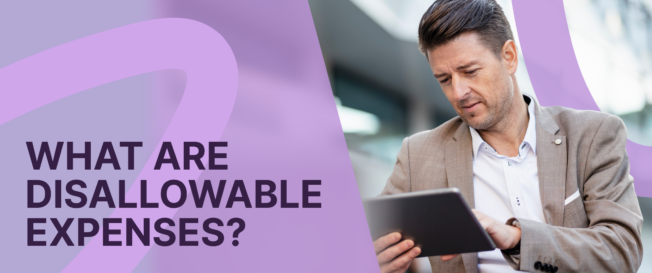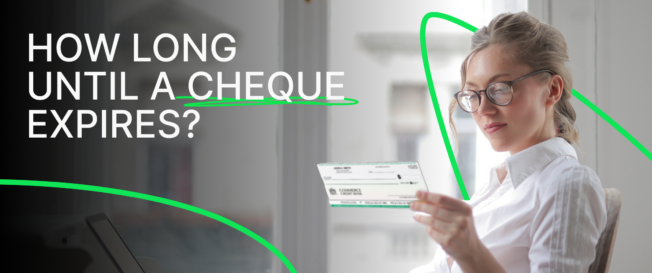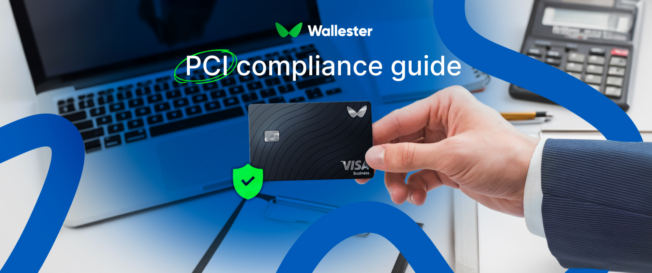Understanding the difference between allowable and disallowable expenses is important for UK businesses and self-employed individuals. This knowledge directly impacts how much tax you pay and helps you maintain accurate financial records. Whether you’re a small firm owner or a sole trader, knowing which outlays you can claim on your tax return and which ones cannot be claimed will support you in managing your tax liability effectively.
Understanding allowable expenses
Allowable expenses are business costs that you can deduct from your taxable income when filing your tax return. These charges must be necessary for your company’s operations and exclusively used for operational purposes. When you claim deductible costs, you reduce your taxable profits, which in turn lowers your corporation tax or self-employment taxes.
The concept of eligible charges exists to reflect the true cost of running a business. Without this provision, organizations would pay tax on their gross income rather than their actual profits, which would create an unfair tax burden. These expenditures play an important role in calculating your company’s profits and determining the final tax bill. The HMRC permits various categories of allowable expenses, provided they meet specific criteria and are properly documented.
Understanding what makes an expense allowable helps you make informed decisions about your spending. The basic rule is that the expense must be wholly and exclusively for commercial use. This means you need to carefully consider each purchase and maintain proper records to support your claims. Mixed-use expenses, where there are both professional and personal benefits, need special attention to determine the allowable portion.
What are allowable expenses for individuals?
For individuals, particularly those who are self-employed, several costs incurred can qualify as eligible charges. One common category is business mileage, which covers the cost of using your vehicle for work-related travel. You can also claim expenses related to your business website, marketing costs, and professional fees.
If you work from home, you might be able to claim a portion of your utility bills as company expenses. The HMRC offers simplified expense options for sole traders to make this process easier. You can also claim tax relief on protective clothing if it’s required for your work, though everyday clothing and business suits cannot be claimed.
When it comes to company expenses, individuals can claim various items that are necessary for their work:
- Office supplies and stationery
- Computer equipment and software licenses
- Phone bills for business calls
- Internet costs (proportional to operational use)
Professional development is another area where individuals can claim charges. This includes relevant training courses, professional subscriptions, and technical books or journals. However, the training must relate to your current activities in the company rather than preparing for a new career.
What are allowable expenses for businesses?
Organizations can claim various expenditures for corporation tax purposes. These include essential operational costs that keep the business running day to day. The range of deductible costs is broader for companies than for individuals, reflecting the more complex nature of enterprise-related operations.
Raw materials and inventory costs form the foundation of allowable business expenses for many companies. Marketing expenses and website costs are considered allowable expenses when they directly relate to promoting your enterprise. Bank charges and loan interest from business loans are also tax deductible.
Professional fees, such as accountancy services and legal expenditures, typically qualify as eligible charges. However, it’s important to note that some legal fees might fall under disallowable expenses depending on their nature. Regular operational outlays that can be claimed include:
- Office rent and operational premises costs
- Staff wages and benefits
- Insurance premiums
- Utilities and maintenance
- Software subscriptions and IT support
Companies can also claim capital allowances on fixed assets and benefit from corporation tax deductions on various operational costs. Training costs that improve business-related skills are generally allowable, as are subcontractor costs when they’re essential to your operations.
Technology investments often represent a significant portion of expenditures. This category includes:
- Computer hardware and software
- Cloud service subscriptions
- Cybersecurity measures
- Communication systems
- Data storage solutions
Understanding disallowable expenses
Disallowable expenses represent costs that cannot be claimed for tax purposes, even if they appear to be connected to your company. These outlays often cause confusion among business owners, leading to incorrect tax returns and potential issues with HMRC. Understanding what constitutes a disallowable expense is just as important as knowing your deductible costs.
The concept of non-claimable outlays exists to prevent abuse of the tax system. These are charges that either have a personal benefit element or are specifically excluded by tax legislation. This category includes items that might seem like legitimate enterprise costs but are actually considered personal or non-business expenses by HMRC.
When dealing with disallowable expenses, you should understand that including them in your tax deductions can result in penalties. Many company owners struggle with identifying which expenditures fall into this category, particularly when costs seem to have both personal and organizational elements. The key is to understand the underlying principles that HMRC uses to determine what cannot be claimed.
Core principles of disallowable expenses
The HMRC follows several fundamental principles when determining whether an expense is disallowable. First, any expense with a significant personal benefit element typically cannot be claimed, even if it also has an operational purpose. For example, a gym membership might keep you fit for work, but it’s considered a personal expense because it primarily benefits you as an individual.
Second, outlays that aren’t wholly and exclusively for business purposes face scrutiny. This principle particularly affects small firm owners and sole traders who might inadvertently mix personal and enterprise-related expenses. For instance, using a personal phone for operational calls doesn’t automatically make the entire phone bill an allowable expense.
Common areas of confusion
Many companies struggle with the grey areas between allowable and disallowable expenses. Entertainment costs often cause particular confusion. While you might view taking clients to lunch as a legitimate business activity, HMRC generally considers this a disallowable expense. The reasoning is that entertainment has a strong personal benefit element and could be used to circumvent tax rules if allowed as a deduction.
Another challenging area is clothing. While protective clothing and uniforms with company logos are typically allowable, business suits and other conventional clothing are not, even if you only wear them for work. HMRC’s view is that everyone needs clothing, regardless of their profession, making it a personal rather than company expense.
Impact on tax returns and business planning
Including non-claimable outlays in your tax return can have serious consequences. Beyond facing penalties, you might trigger a more detailed HMRC investigation into your finances. This can be time-consuming and potentially costly if professional support is needed to resolve the situation.
Smart planning involves understanding these distinctions from the start. Rather than trying to claim borderline charges, it’s often better to focus on clearly allowable expenses and maintain proper documentation for them. This approach allows you to build a strong, audit-resistant expense record.
Key categories of disallowable expenses
Several expense categories are consistently treated as disallowable:
Personal items and services
- Personal clothing and grooming
- Gym memberships and health clubs
- Private healthcare (unless part of a company-wide scheme)
- Personal life insurance
- Domestic utility bills (unless working from home)
Entertainment and hospitality
- Client meals and entertainment
- Staff social events (beyond the annual party allowance)
- Gifts to clients (with some exceptions)
- Sporting events and concert tickets
- Holiday accommodation
Fines and penalties
- Parking tickets and traffic violations
- Late filing penalties
- Interest on overdue tax
- Criminal fines
- Contractual penalties
Capital and investment costs
- Purchase of property
- Long-term asset acquisitions
- Improvements to fixed assets
- Investment in shares
- Personal investments
Documentation and compliance
Proper handling of disallowable expenses requires:
- Clear separation of personal and operational expenditures
- Detailed records of mixed-use items showing an operational portion
- Regular review of expense categories
- Professional advice for complex situations
- Updated knowledge of HMRC guidelines
Understanding these principles enables companies to maintain compliance while maximizing legitimate tax deductions. It’s often worth consulting with a tax professional when setting up expense policies to make sure you’re following the correct approach from the start.
What are disallowable expenses for individuals?
For individuals, several types of expenditures are consistently classified as disallowable. Personal outlays that have no direct connection to your enterprise-related operations cannot be claimed. This includes personal loans and their associated loan repayments. The distinction becomes particularly important when dealing with mixed-use items or services.
Political parties’ donations and membership fees are classic examples of disallowable expenses. Client entertainment and business entertainment costs, while often incurred in the course of building a business relationship, are also non-claimable outlays according to HMRC guidelines. This includes taking clients to restaurants, sporting events, or other social activities.
Many individuals mistakenly try to claim expenditures that they believe are necessary for their work but are actually considered personal. This includes commuting costs to a regular workplace, general clothing (even if worn only for work), and personal grooming expenditures. The key is to understand that these costs would be incurred regardless of whether you’re in business.

What are disallowable expenses for businesses?
Small firms and large enterprises face their own set of disallowed expenses. Capital expenditure, while important for operational growth, often cannot be claimed as a direct expense (though you might be able to claim capital allowances instead). Parking fines and other penalties cannot be claimed, regardless of whether they were incurred during enterprise-related activities.
Financial costs related to raising equity cannot be claimed on your tax return. When considering allowable and disallowable expenses, organizations must carefully examine costs related to entertainment, as these are typically disallowed outlays under HMRC rules. This includes both client entertainment and staff social events beyond permitted annual functions.
The distinction between commercial and personal expenses becomes particularly important for company directors. Drawing a clear line between company expenditures and personal costs is essential. This includes separating personal asset use from operational assets, managing travel expenses appropriately, and handling entertainment costs correctly.
How do I claim allowable expenses?
To claim allowable expenses, you need to maintain detailed records of all your expenses throughout the tax year. When you prepare your tax return, you’ll need to categorize these expenditures correctly and be ready to provide evidence if HMRC requests it. This involves keeping receipts, invoices, and any other relevant documentation that supports your claims.
For business vehicles and other significant purchases, you might need to claim capital allowances rather than treating them as direct expenses. It’s important to understand the distinction between costs that can be claimed immediately and those that must be capitalized. This understanding allows you to make correct decisions about major purchases and how they’ll affect your tax position.
The timing of claims is also important. Expenditures should be claimed in the accounting period they were incurred, following the accruals concept. This means matching expenses to the period they relate to, rather than when they were paid. Understanding this principle helps you keep accurate records and make proper claims.
Practical tips on how to manage your allowable expenses
Managing expenses requires a systematic approach to tracking all business expenses incurred. Start by setting up a dedicated system to record and store receipts for all your charges. This helps when you need to claim tax relief or respond to HMRC queries about your organizational purposes for specific outlays.
Keep business premises expenses separate from any personal use, and keep clear records of costs related to your company operations. For business-related travel, record the purpose and details of each trip, particularly when claiming business mileage. Using a dedicated bank account upholds this separation and makes it easier to track enterprise-related transactions.
Regular review and categorization of expenditures make it easier to identify patterns and potential areas where costs can be reduced. This proactive approach helps with tax compliance and provides valuable insights into your commercial spending. It’s worth investing time in understanding the different categories of charges and how they affect your tax position.
Here’s a comprehensive guide to managing your allowable expenses effectively:
Documentation and record-keeping
- Save digital copies of all receipts immediately after purchase
- Create a logical filing system with folders for different expense categories
- Take photos of paper receipts before they fade
- Record the operational purpose on each receipt
- Keep mileage logs with dates, destinations, and purposes
- Store all documentation for at least 6 years as required by HMRC
Financial organization
- Open a separate bank account
- Use a dedicated credit card for all company purchases
- Set up standing orders for regular payments
- Schedule monthly reconciliation of accounts
- Keep petty cash records with supporting documentation
- Track cash outlays meticulously
Digital tools and software
- Use accounting software that integrates with your bank
- Install a receipt-scanning app on your phone
- Set up cloud storage for digital receipts
- Use mileage-tracking apps for commercial travel
- Implement expense management software
- Enable automatic expense categorization where possible
Regular maintenance tasks
- Review expenditures weekly to catch any missing receipts
- Categorize transactions while they’re fresh in your mind
- Reconcile bank statements monthly
- Check for any personal outlays accidentally paid through professional accounts
- Monitor recurring subscriptions and memberships
- Update mileage logs promptly
Expense policies and procedures
- Create clear guidelines for allowable business expenses
- Establish approval processes for larger purchases
- Set spending limits for different expense categories
- Define procedures for handling mixed-use expenditures
- Create templates for expense reporting
- Document rules for travel and entertainment outlays
Tax planning strategies
- Schedule quarterly reviews of tax-deductible expenses
- Keep track of capital purchases separately
- Monitor changes in tax legislation that might affect claims
- Plan major purchases around your accounting year-end
- Consider the timing of charges for optimal tax benefits
- Manage separate logs for different types of tax relief claims
Compliance and audit preparation
- Keep detailed notes about unusual expenses
- Maintain records of commercial versus personal use calculations
- Document justification for organizational purposes
- Store copies of relevant contracts and agreements
- Keep evidence of payment methods used
- Track the timeline of significant enterprise-related events affecting expenditures
Professional support
- Consult with an accountant regularly
- Seek tax advice for complex transactions
- Get professional support with year-end accounts
- Have systems reviewed by financial experts
- Attend relevant training on tax and expenses
- Join professional networks for ongoing support
Regular implementation of these practices will help you keep clean, accurate records and make tax time much less stressful. It also puts you in a strong position if HMRC ever queries your expense claims. Remember that good expense management is about understanding your spending patterns.
Managing your expenses with Wallester
Using a dedicated expense management system like Wallester can help you track both allowable and disallowable expenses effectively. The platform categorizes your company outlays and keeps detailed records needed for your tax return. This systematic approach reduces the time spent on administrative tasks and prevents errors in expense classification.
Wallester’s comprehensive expense management features include:
Smart expense tracking
- Automatic categorization of transactions
- Real-time receipt capture and storage
- Custom categories for your specific business needs
- Multi-currency support for international transactions
- Automated matching of receipts to transactions
- Digital storage of all expense documentation
Business and tax compliance
- Separation of personal and commercial expenditures
- Built-in HMRC expense categories
- VAT calculation and tracking
- Audit trail maintenance
- Customizable approval workflows
- Automated compliance checks
Reporting and analytics
- Real-time spending insights
- Customizable expense reports
- Budget tracking and forecasting
- Trend analysis and spending patterns
- Category-wise expense breakdown
- Tax liability projections
By separating personal outlays from operational costs, you can better manage your taxable income and uphold accurate financial records. This systematic approach helps reduce errors when calculating your tax deductions and preparing financial statements. The platform also helps you maintain a clear audit trail, which is essential if HMRC ever questions your expense claims.
Modern expense management systems can help identify potential tax savings by highlighting allowable expenses that you might have overlooked. This approach to expense management can lead to significant tax savings while providing compliance with HMRC requirements.


